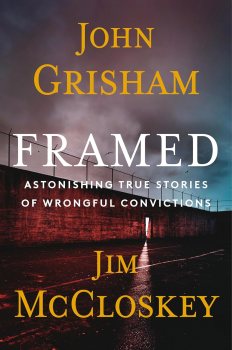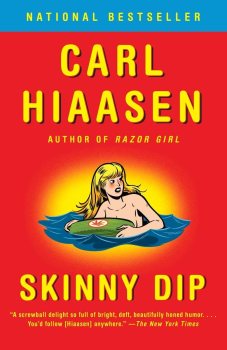Dean Poling Book Reviews
Published 5:14 pm Saturday, December 14, 2024
By Dean Poling
Of his 50 books, John Grisham only dipped into non-fiction once.
Bestsellers like “A Time to Kill,” “The Firm,” “The Pelican Brief” and more recent books such as the “Camino” books are all novels. But Grisham’s “The Innocent Man,” published nearly 20 years ago in 2006, is, as the author notes, the “true story about the wrongful conviction and near execution of Ron Williamson.”
It is Grisham’s only foray into non-fiction.
Until now.
With Jim McCloskey, Grisham’s latest book is “Framed: Astonishing True Stories of Wrongful Convictions.”
McCloskey is the founder of Centurion Ministries, an organization dedicated to freeing people who have been wrongly convicted. “Since its establishment 40 years ago, Centurion has freed 70 individuals, all of who spent decades in prison serving life or death sentences for the crimes of others,” according to the book.
Grisham and McCloskey share the stories of 10 Centurion cases. They tag-team the writing chores in an alternating format: Grisham tells a story, McCloskey tells a story, Grisham, McCloskey, etc.
The authors chronicle stories of cops, prosecutors and judges who are inept, malicious, stubborn, arrogant, or some combination of all of these traits. These law-enforcement and court officials often become so laser-focused on the wrong suspect or suspects that they ignore or refuse to acknowledge evidence and real suspects in these cases.
In some cases, investigators and district attorneys create then glom onto ridiculous scenarios that can’t possibly be true but they double-down on these theories or contrive to make them more preposterous when confronted with evidence that refutes their “findings.”
Often, there are no findings to support the prosecution claims but that doesn’t stop jurors from sending these people to prison for life without parole or to death row.
“Framed” doesn’t suggest that all law-enforcement or prosecutors are corrupt, misguided, inept, malicious or stupid. The book doesn’t claim that everyone in prison is innocent.
But in Grisham and McCloskey’s hands the people here seem obviously innocent. These are people whose lives are ruined by wrongful convictions. They have lost decades of their lives in prison for crimes they didn’t commit. In once case, a man lost his life to a crime he didn’t commit.
They are people wrongly convicted in crimes of people they knew, or people they never met, or people who were their loved ones. Imagine the horror of losing a spouse or loved one to violence then wrongly being the one convicted of the crime.
Or, as in one case, losing one’s children, being convicted, put to death, then evidence revealing that a crime never occurred in the first place but rather a horrible accident.
Many readers will look at our judicial system differently after reading this book. And readers may be a little more circumspect about the techniques leading to a person’s arrest and conviction.
Skinny Dip: Carl Hiaasen
By Dean Poling
Save for a few changes in technology, Carl Hiaasen’s “Skinny Dip” is as relevant, irreverent and funny now as it was when first published 20 years ago.
The book opens with Chaz Perrone pushing his wife, Joey, overboard during a cruise. What Chaz doesn’t know is the fall doesn’t kill Joey but she does lose her clothes upon hitting the water (hence, the title of the book).
Mick Stranahan, a former detective who lives as a recluse on an island, finds Joey clinging desperately to a floating bale of marijuana. He plucks her from the ocean and helps Joey recover. She convinces Mick not to call the cops and persuades him instead to help her plot against her husband.
“Skinny Dip” is a revenge tale but it’s also a caper – meaning bad things happen but in a light-hearted manner. Except for what lies at the heart of the plot – the pollution of the Florida Everglades – a real environmental crime inspiring the fictional crimes of human foibles in “Skinny Dip.”
As with all of Hiaasen’s books, “Skinny Dip” is a Florida tale, pitting the entertaining but hazardous cultural phenomenon of “Florida Man” against the loss of the state’s natural attributes to the over-encroachment of tourism and development. If you’re unfamiliar with the concept of “Florida Man,” google it.
A joy of reading Hiaasen’s books in no particular order is unexpectedly discovering recurring characters and themes that were published years, even decades, apart.
For example, this is apparently the second Mick Stranahan book, something I didn’t know until after finishing “Skinny Dip.” I didn’t even bother to look up the title of Hiaasen’s first Stranahan book, or if there is a third one. I’ll run across it/them when it happens.






